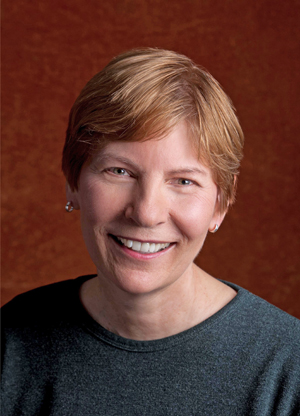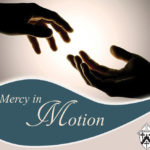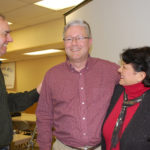By Kathy Berken
By all accounts, my dear friend Mary should have died. Instead, she disappeared. I lost track of her last year when all attempts to contact her failed. She lived in Green Bay, Wis.; I live in Saint Paul, Minn. Her name was not in the obituaries and none of our mutual friends knew anything. Last I knew, her husband Jim was in an Alzheimer’s facility and Mary was still teaching art classes, and demonstrating and selling at local festivals.

I felt hopeless, until I read a Facebook post by someone I guessed might be her brother, Mike. He told me that about a year ago she had a stroke, leaving her paralyzed on her left side. Alone in her remotely located home, Mary dragged herself inch by excruciating inch to the steep spiral staircase, down and around to the door, hoping someone would see her. After three days without assistance, someone came looking for her.
“It’s been a rough year,” Mike explained. “She’s in assisted living now and has trouble with some words,” was all he said. I needed to see her. I decided to stop in, unannounced.
Mary and I became fast friends in 1974 while teaching at Sacred Heart Center High School, near Green Bay. Mary was heart and soul of the place. Her creativity, love and humor infected everyone. Our faculty of priests, nuns and lay folks had one vision for the school: to create church leaders through a unique curriculum. My favorite part of the day was what we loosely called “liturgy.” Every day was different: Mass with active participation, church history classes, and even liturgical dance, which Mary and I team-taught. Mary, a natural leader, artist, theatrical director and performer, taught “Humanities,” incorporating all things creative. One day she put a snake on her desk, just because. I often saw students outside performing their own plays, with Mary always incorporating fun into serious learning.
Arriving at her assisted living center, I followed the aide who pointed to a tiny woman leaning over a walker. “That’s Mary over there.”
I took a deep breath, covered my mouth, and stared in disbelief. No, no, that’s not Mary. My old friend is a large expressive woman of stature, her long hair pulled up behind her head, dressed in colorful and fun flowing outfits. The hunched-over little woman was half Mary’s size. She wore a blue polo shirt and black capris, her wispy gray hair short and straight.
I walked over and when she looked up, our eyes met. “Mary?” I said. Oh dear, memories of our friendship filled her face. When she flashed that smile, I knew, too. Then she began to cry, “Oh, baby, baby, baby!” she kept saying. I leaned closer, put my arms around her frail body, and asked, “Do you know who I am?” “Yes, yes,” she sobbed. We wiped our tears and walked slowly to her room.
My struggle to find simple questions and her struggle to find words — any words — changed me. Mary’s voice was higher and halting. Her limited vocabulary included no names. Her children are just “boy” and “girl.” She pointed to a page with objects and words to match. “‘Umbrella’ is hard,” she chuckled. “It has so many . . .” “Letters?” I said. She said, “No, pictures!” Now, that’s funny! She met my question about Jim with a gesture of his being strong. “He does not know me,” she said, “but he is nice when we talk.”
I feel transformed by Mary’s fierce struggle to survive and her determination to read and write again. She explained that she “worked hard” to get down those stairs that day and knew if she didn’t, she would die. When she is better, she wants to help other stroke patients because she knows what it feels like. “How does it feel?” I asked. “It is weird, so weird,” she smiled, with eyes that I think said, “I could explain this to you but ‘weird’ is the only word I can get out.”
As I wrote in June, the universe is constantly changing. Encountering my new old friend renewed my hope in the value of persistence. Despite what the stroke did to her mind and body, Mary wants to get well enough to help others.
But I contend that she doesn’t need to wait to help others. Mary has already shown me that creativity, love and humor can persist and be profoundly healing, despite tragedy.
(Kathy Berken has a master’s degree in theology from St. Catherine University, St. Paul, Minn. She lived and worked at The Arche, L’Arche in Clinton 1999-2009 and is author of “Walking on a Rolling Deck: Life on the Ark (stories from The Arch).”)











